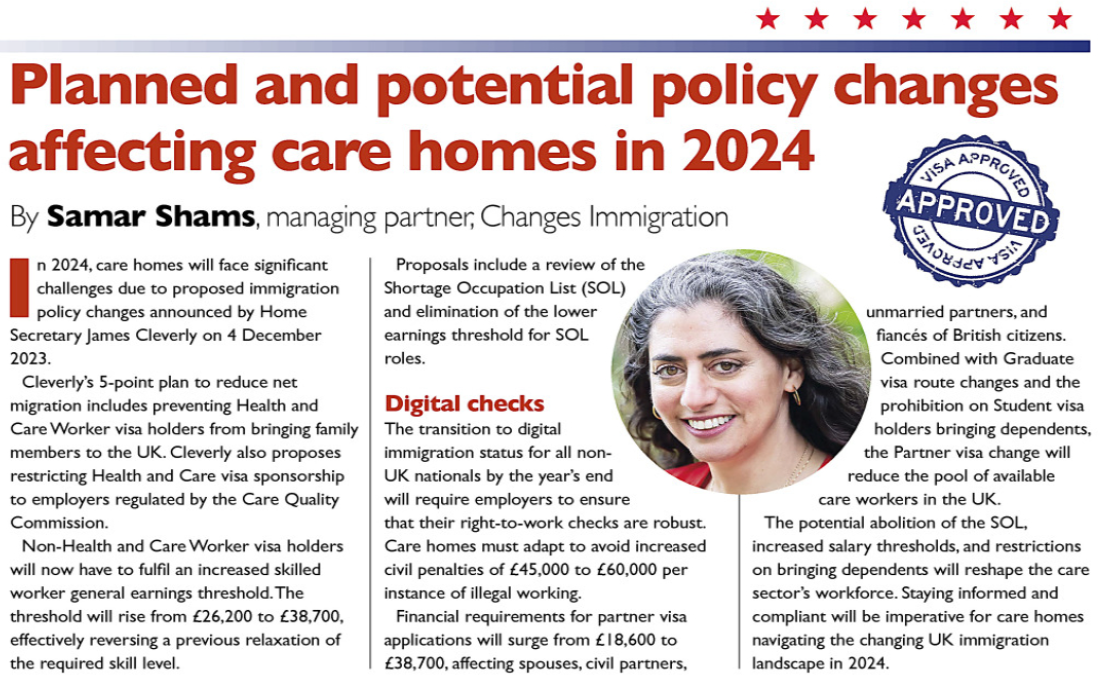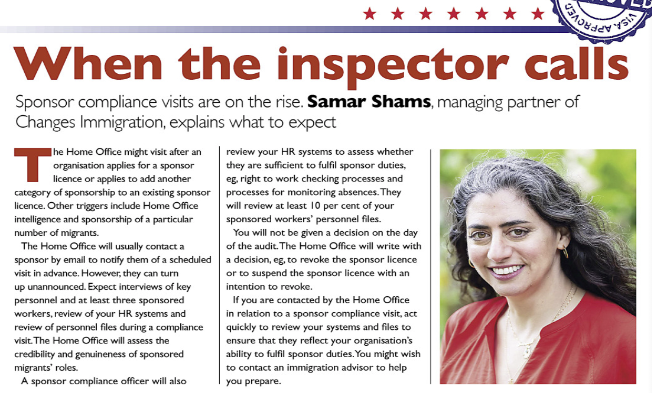Changes to the Scale-up visa route and trends in sponsorship make Scale-up sponsorship an attractive sponsorship option that UK SMEs are now using in the competition for talent.
What’s new
The Government introduced alternative eligibility criteria for the Scale-up sponsor licence in April 2023. At the same time, the Home Office has ramped up sponsor compliance efforts and has been revoking sponsor licences more frequently after compliance visits.
When sponsoring a worker under the Scale-up route, an employer is only responsible for fulfilling sponsorship duties for 6 months. The worker would then have the right to work for any UK employer for the remainder of their immigration permission. Given the Home Office focus on compliance activity, the relatively short sponsorship commitment is attractive to businesses concentrating their energies on growth.
A Scale-up licence can also be a great way to attract talent. Considering the huge labour shortages in sectors like tech, a Scale-up licence can be an excellent tool for filling vacancies.
Changes to the route have also benefited Scale-up Workers themselves: Previously they had to apply to switch from being a sponsored Scale-Up Worker to being an unsponsored Scale-Up Worker. Now the switch is automatic after an initial 6-months’ validity of their Scale-Up permission.
The changes have proved effective in attracting UK employers to this route. Before the changes, there were about 10 employers holding Scale-up sponsor licences. Since the introduction of the more flexible eligibility criteria two months ago, the number has shot to 33.
The standard pathway
Before April 2023, to be eligible for a Scale-up sponsor licence a business had to have annualised growth of 20% over the 3 years before submission of the application, based on staff count or turnover. Many companies that consider themselves Scale-ups would meet the growth requirement. However, they must also have had at least 10 employees at the start of the relevant 3-year period, which can be a more difficult criteria for a relatively new company. An employer can still fulfil this set of criteria, called the standard pathway, when making a Scale-up sponsor licence application.
The endorsing body pathway
The ‘endorsing body pathway’, introduced in April 2023, affords UK employers more flexibility in meeting the requirements for the licence.
All employers applying under the endorsing body Scale-up sponsor licence application pathway must meet the following criteria:
- 10 employees;
- VAT registration;
- Solvent and trading;
- HMRC footprint of less than 4 years;
- Potential growth rate consistent with the Home Office definition of a Scale-up and can be reasonably expected to qualify under the standard pathway within the next 4 years;
- Sufficient finance to offer appropriate salaries to individuals working in roles which meet the skill level; and
- UK- registered corporate bank account.
An employer applying under the endorsing body pathway must meet 3 additional criteria from options including growth of 20% in turnover or employment per year over a 2-year period, participation in or receipt of funding from a relevant Government programme such as Innovate UK, raising £1 million in finance, or research and development expenditure.
Document requirements
The Home Office will refer to PAYE information and VAT returns submitted to HMRC to assess a company’s eligibility for a Scale-up sponsor licence. Therefore, no supporting documents are required for the Scale-up type of sponsor licence, other than an endorsement letter if applying under the endorsing body pathway. An exception is if a company needs to be registered to operate legally in the UK, in which case they must submit the relevant documentation of the required registration.
The Scale-up Worker and their role
The Scale-up route can only be used to fill high skilled roles, i.e. Regulated Qualifications Framework level 6 or above, which is equivalent to graduate level. A minimum salary of £34,600 or the ‘going rate’ for the role applies and the Worker is expected to work for the sponsor for at least 6 months.
Scale-up visa applicants must demonstrate English language ability and meet the financial requirement.
An initial application is made as a sponsored Scale-up Worker and the permission granted is valid for 2 years. After the initial 6 months’ of permission, the employer’s sponsorship responsibilities end automatically and the Scale-up Worker is automatically eligible to work for another employer for the remainder of their permission. They can apply for an extension of permission as an unsponsored Scale-up Worker. If successful, they will be granted permission for a further 3 years.
A scale-up worker might be eligible for indefinite leave to remain, or settlement, after 5 years. Scale-up workers can bring certain family members with them to the UK.
Conclusion
The Scale-up route is now open for business in earnest. Please get in touch if your organisation is interested in making an application.
Publication Date: 20 June 2023









